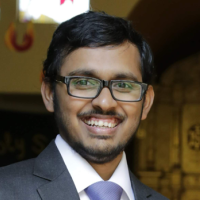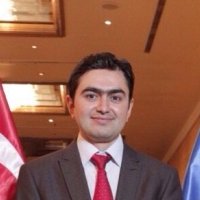Venezuela’s Authoritarian Allies: The Ties That Bind?
A new book published by the Latin American Program, Venezuela’s Authoritarian Allies: The Ties That Bind? explores the international dimensions of regime survival in Venezuela. Specifically, the book examines the ways that international allies of Nicolás Maduro’s authoritarian government have assisted it in surviving a calamitous period of economic decline, punishing U.S. economic sanctions, and internal pressures for political change.
This book, edited by Cynthia J. Arnson, aims to fill an important gap in the understanding of the international dimensions of the Venezuelan crisis. It details how a range of international allies—Russia, China, Cuba, India, Turkey, and Iran—have aligned with Caracas for a variety of economic, political, ideological, and geostrategic reasons. Understanding the diversity of these interests and motivations is key to determining how, if at all, the relationships might be modified.
Selected Quotes
James Bosworth
“One of the things we've seen in recent years is that Iran has trained Venezuela how to evade sanctions.”
“We (the U.S.) have pushed together the sanctioned countries and given them a reason to form alliances and form financial ties that allows them to evade those sanctions.”
“We are talking big geopolitical relationships, country-to-country relationships, but we also have the role of super-facilitators and the role of personal relationships that exist around the world are just as important as country-to-country relationships. We can be much more effective in sanctioning countries when we go after those super-facilitators.”
Richard E. Feinberg
“Basically, the relationship has been a barter relationship between the two nations, Cuba and Venezuela, in which they exchange goods and services where they have comparative advantages and surplus. Oil on the one hand, security assistance and doctors on the other.”
“We have driven Cuba and Venezuela closer and closer together because we put them in the same box and we are very antagonistic to both.”
“The U.S. ought to try a more subtle policy of dividing Cuba and Venezuela while recognizing that that's not going to be an easy diplomatic maneuver.”
Brian Fonseca
“Cuban security officials exercise really important and significant influence in Venezuela, and provide the technical support to the Maduro regime."
“The two governments [Cuba and Venezuela] have not been very transparent about the size and scope of any contingent of Cuban military and security forces in Venezuela... At the same time, the U.S. and other countries have, at times, exaggerated (in our opinion) the number of Cuban security forces or intelligence forces on the ground.”
“One of the most important things we can do is disaggregate U.S. policy in the narrative towards Venezuela from the narrative towards Cuba. They are two very different countries with very different meanings for U.S. national interest."
Stephen B. Kaplan
“Importantly, when we think… how does China behave in Venezuela bilaterally, we need to think regionally as well… The entry point for China to the region was in many ways, economically, in Venezuela. But that being said, they now have much more of a diversified posture within the region. So when we think of China, we should think of them almost in terms of a portfolio, that they’re gonna be concerned about their investments and their relations throughout the region. So, what they’ve done to some extent… is they’ve taken some lessons as a creditor in Venezuela and applied it elsewhere. In other words, they’ve diversified their instruments.”
“Quite often, from a Washington D.C. perspective, China is treated geopolitically and even monolithically. So I think a key point and takeaway from our chapter is that this is a power that is often incremental, often diversified in its tool set, and quite willing to change its investments toward the market and even away from the state to the extent to which it needs to. That is exemplified in the case of Venezuela, where… from the portfolio of investments, there’s been a lot of mispricing of risk… I very much would like to conclude emphasizing the geo-economic nature of this relation and not just the political nature of the relationship.”
Imdat Oner
“How we can describe Turkey-Venezuela relations is with non-transparency, and more kind of a murky, shady business. And this of course highly benefits government members in both countries.”
“Maduro’s regime, several times, offered Turkey to play a mediator role between the opposition and the government, because we know that some Venezuelan opposition… believe that Turkey still plays a critical role because Turkey is a NATO ally and Turkey is a U.S. ally… But it’s kind of an overoptimism that Turkey could play a mediator role because the other parts of the opposition… don’t trust Turkey.”
“[The alliance between Turkey and Venezuela] is an alliance of convenience, that is far from any strategic relations, far from any institutionalization between the two countries. So I think we will not see Turkey in the Venezuelan picture after Erdoğan loses power because we see these relations mostly based on the Erdoğan-Maduro rapprochement.”
Michael A. Penfold
“China has been moving also towards more of a political relationship with Venezuela in the sense that they have been more willing to help the country, particularly under COVID-19, with medical supplies, vaccinations, rather than only exclusively through loans and oil purchases. And this is, I think, a very important shift also, because it’s one where China is privileging its long-term interest in Venezuela, which is to keep the relationship going but using different tools in the short-term to support the regime through other means, and without losing sight that the real interest is in the oil sector.”
“Russia is today the third [largest] provider of oil to the U.S., and in part, the reason for that is that they benefited enormously from Venezuela being out of the market in the U.S. and selling oil through the refineries… By contrast, China has stayed, protecting its long-term interest in Venezuela. So I think overall… they want to see a solution to the current situation in Venezuela in order to have what they perceive [as] an important upside in the reconstruction of the oil industry. Of course, the way… that political conflict is settled will determine what kind of role they can or cannot play in Venezuela in terms of international financing to reconstruct the oil industry.”
John Polga-Hecimovich
“Venezuela is a commercial lifeline for Cuba the way India and China are commercial lifelines for Venezuela."
“We know Cuba receives Venezuelan oil in order to maintain its economy and Venezuela receives Cuban intelligence and military advisor support so that essentially Nicolás Maduro can remain in power.”
“A hypothetical demise of Maduro or of chavismo would have a significant impact on Cuba and plunge it into another special period.”
Vladimir Rouvinski
“Russia’s participation in the Venezuelan crisis was determined for keeping Maduro in power and remains as the most important ally of Venezuela on the global stage—I have no doubt of this. But sometimes I think the Russian’s motivations to support Venezuela have been perhaps wrongly interpreted. I think, yes, there [are] important security implications of the Russians participation in the Venezuelan case, and Russia does look for reciprocity. But in my opinion, that reciprocity is mostly symbolic.”
“I think for Russia, as well as for China, but from a different perspective, Venezuela became an entry point to Latin America. Actually, the real Russian return to Latin America began with Venezuela and it was because Putin and Chávez understood that this kind of a relation can be mutually beneficial in terms of them keeping the power in their respective countries. I think one of the most important outcomes of the Russian love story with Venezuela is actually that Russia is now feeling very, very comfortable everywhere in Latin America. They can do a lot of new stuff in Latin America and that is because of the knowledge acquired thanks to their relationship with Venezuela.”
Hari Seshasayee
“Over the past five years, India has imported about $26 billion worth of oil from Venezuela. And all of that is just hard foreign currency. It doesn’t go back to paying loans like China does… So to put that in perspective, that’s nearly double of what, last year, Turkey, Cuba, and Iran combined imported from Venezuela over the past five years. This is really the reason why India is even included in this book, because it is a commercial lifeline for the Venezuelan regime. Most other analyses you’d see of Venezuela's external partners would focus mostly on the political allies and they would exclude India.”
“I should emphasize that, unlike… China, [who] is an ideological ally to chavismo, India is not. India is… the odd one out in this book. It is not an autocracy like the other countries we’d be discussing today, and it’s not a political ally. It’s just a commercial ally. And perhaps the biggest example of this is that the Indian Prime Minister has actually never met Maduro. Over the past eight years, Maduro has not met the Indian head of government.”
Moderators


Panelists

Director, Center for Inter-Disciplinary Studies, Icesi University, Cali, Colombia

Professor of Political Science, Instituto de Estudios Superiores de Administración (IESA) Business and Public Policy School, Venezuela

Associate Professor of Political Science and International Affairs, George Washington University

Advisor to the Foreign Minister of Panama and Asia-Latin America Expert, UNDP




Professor Emeritus, University of California, San Diego; Former Senior Director for Inter-American Affairs at the National Security Council

Founder, Latin America Risk Report & Hxagon Consulting
Hosted By

Latin America Program
The Wilson Center’s prestigious Latin America Program provides non-partisan expertise to a broad community of decision makers in the United States and Latin America on critical policy issues facing the Hemisphere. The Program provides insightful and actionable research for policymakers, private sector leaders, journalists, and public intellectuals in the United States and Latin America. To bridge the gap between scholarship and policy action, it fosters new inquiry, sponsors high-level public and private meetings among multiple stakeholders, and explores policy options to improve outcomes for citizens throughout the Americas. Drawing on the Wilson Center’s strength as the nation’s key non-partisan policy forum, the Program serves as a trusted source of analysis and a vital point of contact between the worlds of scholarship and action. Read more


Indo-Pacific Program
The Indo-Pacific Program promotes policy debate and intellectual discussions on US interests in the Asia-Pacific as well as political, economic, security, and social issues relating to the world’s most populous and economically dynamic region. Read more


Kennan Institute
After more than 50 years as a vital part of the Wilson Center legacy, the Kennan Institute has become an independent think tank. You can find the current website for the Kennan Institute at kennaninstitute.org. Please look for future announcements about partnership activities between the Wilson Center and the Kennan Institute at Wilson Center Press Room. The Wilson Center is proud of its historic connection to the Kennan Institute and looks forward to supporting its activities as an independent center of knowledge. The Kennan Institute is committed to improving American understanding of Russia, Ukraine, Central Asia, the South Caucasus, and the surrounding region through research and exchange. Read more


Kissinger Institute on China and the United States
The Kissinger Institute works to ensure that China policy serves American long-term interests and is founded in understanding of historical and cultural factors in bilateral relations and in accurate assessment of the aspirations of China’s government and people. Read more


Middle East Program
The Wilson Center’s Middle East Program serves as a crucial resource for the policymaking community and beyond, providing analyses and research that helps inform US foreign policymaking, stimulates public debate, and expands knowledge about issues in the wider Middle East and North Africa (MENA) region. Read more
